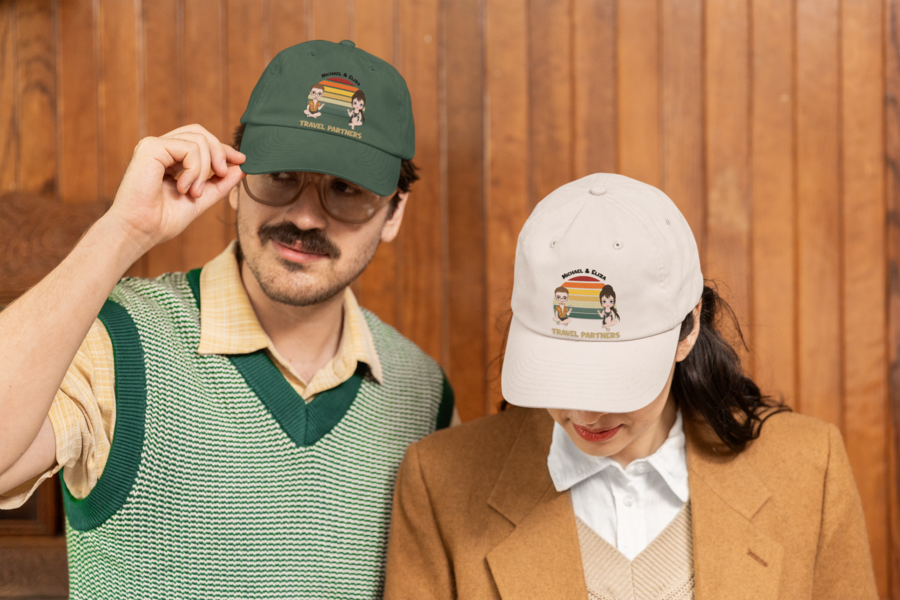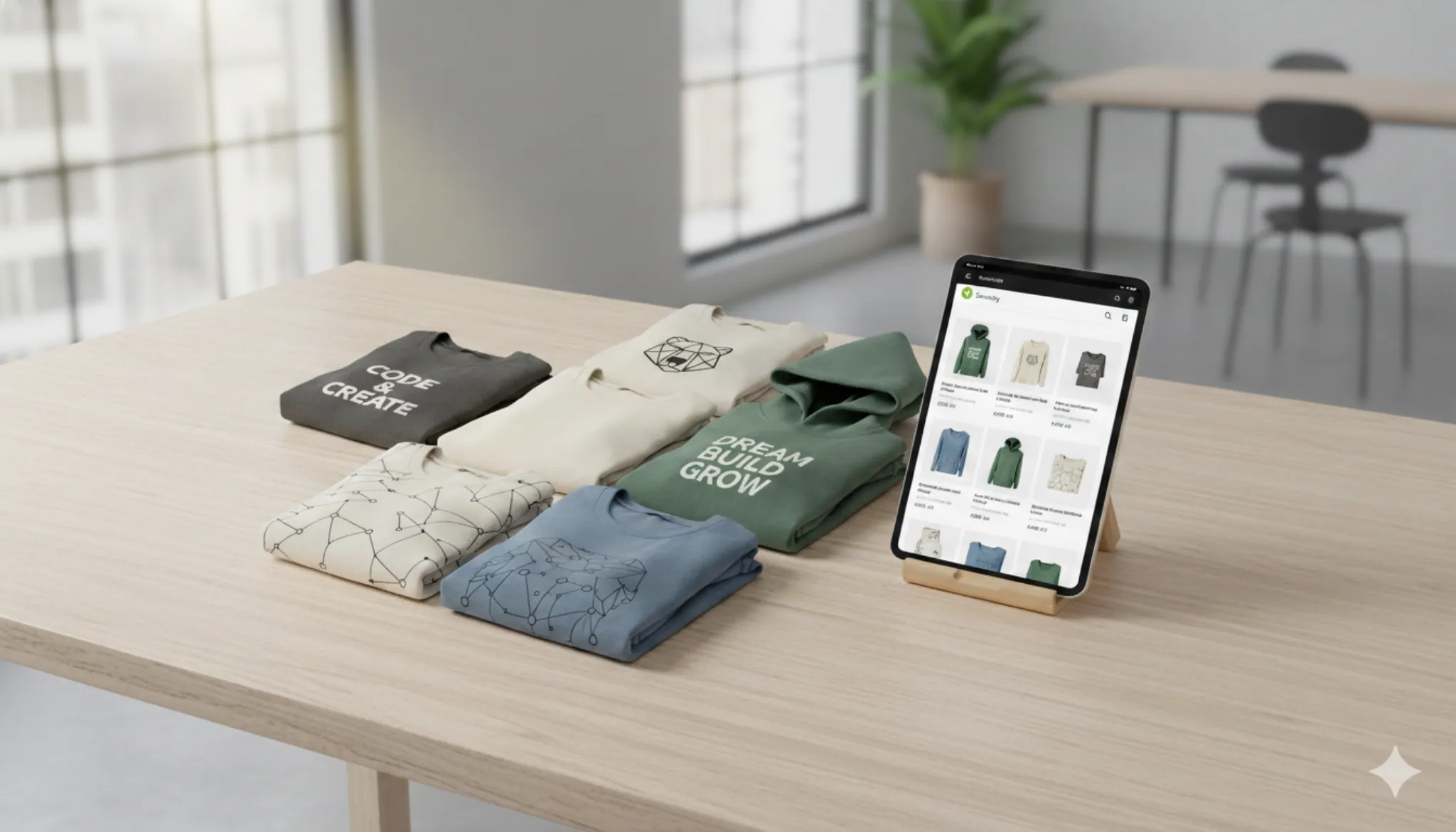Table of Contents
Personalize your Shopify products
Install for freeFashion personalization has emerged as a key driver in improving customer experience and engagement in the e-commerce landscape. In an era where consumers look for uniqueness and individuality, personalization has moved beyond being a mere option to becoming a fundamental aspect of modern retail. This shift reflects broader trends in society, including the demand for sustainable practices, ethical consumption, and innovative technology-driven solutions 🔥
Fashion brands are increasingly adopting advanced tools like AI, machine learning, and augmented reality to create meaningful, customer-oriented shopping experiences. These tools not only empower consumers to express their styles but also enhance brand loyalty by offering tailored recommendations and exclusive designs.
As we approach 2026, the personalized fashion industry is being reshaped by these innovations, responding to shifting consumer expectations and paving the way for a more inclusive and customer-centric future. 🛍️
What is fashion customization?
Fashion customization involves tailoring clothing and accessories to align with individual customer preferences, transforming mass-market products into uniquely personal items. This concept includes a broad spectrum of possibilities, from adding simple personalized touches, like monograms or embroidery, to creating entirely custom-designed pieces that empower shoppers to express their distinct identity and style. As consumer demand for personalization grows, brands are leveraging technology to make these experiences more seamless, engaging, and accessible.
Customization includes different key elements. Among the most important ones, we can find:
- Product configurators:
- Product configurators are interactive tools that allow customers to visualize and modify product attributes such as color, fabric, or design in real-time. These user-friendly tools are essential for providing a dynamic and engaging shopping experience. For instance, Customily offers a robust personalization platform for e-commerce, enabling shoppers to modify designs, add text, or upload their own images to create truly one-of-a-kind items. This approach not only empowers customers but also increases their confidence in their purchases by letting them see their designs come to life before finalizing their orders.
- AI-powered recommendations:
- Artificial intelligence is revolutionizing fashion customization through personalized product recommendations. By analyzing browsing history, past purchases, and uploaded visuals, machine learning algorithms tailor shopping experiences to each individual. This technology enhances convenience by presenting customers with products they are most likely to love, creating a sense of being understood and valued. For example, some e-commerce platforms utilize visual search tools, allowing users to upload images of clothing they like and receive similar product suggestions tailored to their tastes.
- On-demand production:
- On-demand production, particularly through print-on-demand services, has become a cornerstone of sustainable and personalized fashion. This method minimizes waste by producing items only after an order is placed, significantly reducing overstock and environmental impact. For brands, this approach offers greater flexibility in experimenting with designs and catering to niche markets without the financial risks of traditional bulk production. Consumers, in turn, enjoy the benefit of receiving custom products that align with their exact preferences and values.

Forecast for the fashion industry
By 2025, the global fashion market is expected to grow significantly, with personalization as the main contributor. According to reports, nearly 71% of consumers expect brands to deliver personalized experiences. This demand drives fashion brands to adopt cutting-edge strategies, such as AI integration and augmented reality, to offer custom-made shopping experiences.
Fashion's future is increasingly closely connected with technology. Headless e-commerce platforms have empowered brands to integrate multiple APIs, offering flexibility and scalability to tailor the shopping experience for diverse audiences. Furthermore, sustainability through customization is key. Many brands utilize personalization to reduce overproduction and encourage conscious consumerism. You produce what you sell. This is possible for small retailers can do this thanks to print-on-demand providers which allow them to offer a wide variety of customizable products without holding inventory.
Strategies driving personalization in 2026
2026 will be a profitable year for the customizable fashion industry. However, to leverage this industry, some strategies should be borne in mind.
- Dynamic merchandising:
Combining selected collections with personalized product recommendations to cater to individual customer journeys.
- Advanced search functions:
Predictive and natural language search tools provide personalized results, enhancing the user experience.
- AI in shopping experiences:
Artificial intelligence plays a transformative role in fashion e-commerce by enhancing personalization and confidence in purchasing decisions. Key AI-powered tools include:
- Size recommendations:
Algorithms that use data like body measurements, past purchases, and peer reviews to suggest the right fit.
- Style advisors:
Virtual assistants who analyze trends and individual preferences to offer styling tips.
- Virtual try-ons:
Augmented reality technologies that allow customers to visualize how clothing and accessories will look on them, eliminating uncertainty and reducing returns.
- Composable commerce:
Allowing brands to build modular, flexible systems that adapt to evolving customer needs while reducing vendor lock-in.

When we think of how the fashion industry should evolve over the next five years, we know that it will be necessary to:
- Embrace omnichannel strategies, ensuring seamless integration between online and offline shopping.
- Prioritize ethical and sustainable practices in personalization.
- Invest in AR and VR technologies to bridge the gap between physical and digital experiences.
By aligning with these trends, fashion brands can enhance customer loyalty while preparing their business models for a rapidly evolving marketplace. Personalization has become essential in meeting consumer demands for unique experiences, convenience, and sustainability.
Leveraging technologies like AI, AR, and modular commerce allows brands to offer tailored shopping journeys, adapt to market changes, and maintain a competitive edge. Brands that embrace innovation and invest in understanding their audience will secure long-term success in the dynamic fashion industry.
Happy Customizing! 💫

















